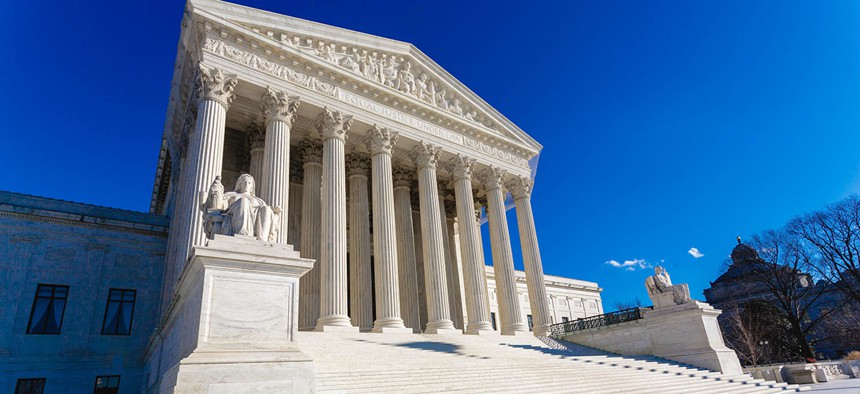Privacy Rights for Cellphone Users in the U.S. Will Be Tested in a New Supreme Court Case

Tinnaporn Sathapornnanont/Shutterstock.com
Slowly but surely, the Supreme Court is beginning to shape constitutional protections for a digital age.
Slowly but surely, the Supreme Court is beginning to shape constitutional protections for a digital age.
This week, the high court agreed to hear Carpenter v. US, a case that will help define privacy rights related to cellphones.

The court granted Timothy Carpenter’s petition challenging his convictions for robbery—ironically, of cellphone stores—based on cellphone location data that was obtained without a warrant. He says the gathering of this evidence violated the U.S. Constitution’s Fourth Amendment, which prohibits unreasonable searches and requires police to show probable cause and to obtain a warrant from a judge before searching private items.
The information challenged in this case is collected by all cellphone service providers and stored for four months. The government claims it is not private and that police need no warrant to get the data, based on two cases from the 1970s and the 1986 Stored Communications Act. Under its reading, location data is routine business information collected in part for system improvements, and individuals have no reasonable expectation of privacy when it comes to these records.
The basic question presented then is whether location data—a record of pings a phone sends to nearby cell towers as it passes by them—is private. Police don’t see or hear the content of the communications by reading the records. But the information does tell a story, and cell towers are everywhere now, which means the story is more detailed today than in the past.
Whether reading that story requires probable cause and a warrant is what the justices will determine when they hear the case this autumn. (Circuit courts are split on the issue.)
According to Carpenter’s attorneys, the case has consequences for everyone with a cellphone, or 95 percent of Americans. That may very well include the Supreme Court justices, who will no doubt be cognizant this summer of where they take their devices and the information they are unwittingly providing authorities.
Indeed, this case will be meaningful to many, but especially constitutional lawyers and privacy advocates, who will be on pins and needles until the fall. The Electronic Frontier Foundation, a nonprofit dedicated to civil liberties in the digital sphere, submitted an amicus curiae brief arguing for a Supreme Court review of the case. It believes that Americans do have an expectation of privacy in location data and that the information is constitutionally protected under the Fourth Amendment.

The government unsuccessfully tried to deflect similar arguments in Riley v. California, a case about cellphone searches after arrest, arguing that phone data is “materially indistinguishable” from physical items, like keys and wallets.
The high court justices roundly rejected this claim. “That is like saying a ride on horseback is materially indistinguishable from a flight to the moon,” they quipped, finding that police need a warrant to search phone data after arrest.
That case came before the court in 2014. Even back then, the proof of our dependence on smartphones looked to the court to be unassailable. Chief justice John Roberts wrote that year that cellphones “are now such a pervasive and insistent part of daily life that the proverbial visitor from Mars might conclude they were an important feature of human anatomy.” Now they are becoming an increasingly important factor in the law.





